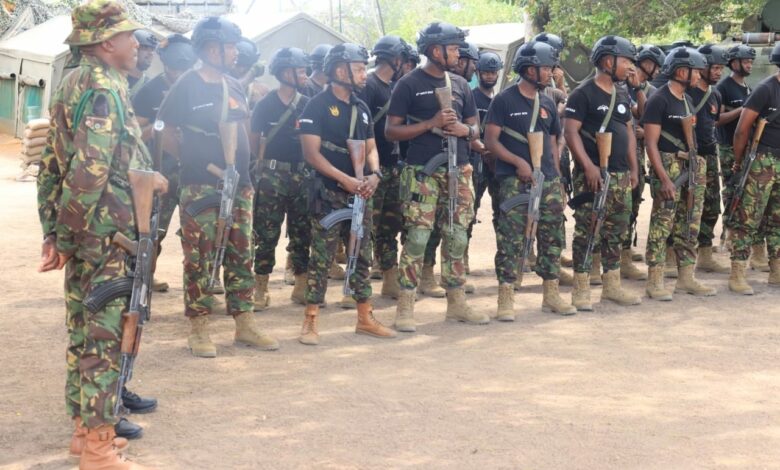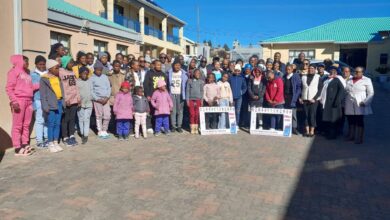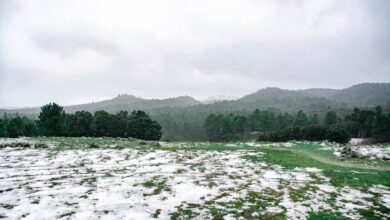Lesotho Defence Force Dismisses Claims of South African Military Base at Katse Dam

The Lesotho Defence Force (LDF) has firmly denied suggestions that the South African National Defence Force (SANDF) plans to establish a military base at Katse Dam, a strategic site in the Lesotho Highlands Water Project (LHWP). Amid public outcry and growing concern from traditional leaders and civil society groups, the LDF reassured Basotho that military installations within the country will remain under its exclusive jurisdiction.
Katse Dam is a pivotal component of the LHWP, a long-standing bilateral water-sharing agreement between Lesotho and South Africa. Constructed to harness water from the Senqu/Orange River, the dam ensures water supply to South Africa while generating revenue and infrastructure development for Lesotho. As such, any activity around Katse carries high national interest and scrutiny.
The controversy arose after minutes from the second session of the Bi-National Commission (BNC) summit—held in Maseru on April 22-23—surfaced, suggesting ongoing discussions around establishing a military post at Katse and rehabilitating the existing Oxbow military base. While these meetings indicated increased defence cooperation between the two countries, including training and logistics support, there was no explicit confirmation of a permanent SANDF base.
LDF Reaffirms Control Over Military Bases
In response to the concerns, LDF spokesperson Lieutenant Colonel Sakeng Lekola categorically denied the establishment of a SANDF base at Katse Dam.
“Katse Base will remain part of the LDF and will never at one day be a base for another military,” said Lt. Col. Lekola.
He clarified that although Lesotho may accept assistance from SANDF in the rehabilitation of infrastructure or participate in joint training exercises, full operational control will remain with the LDF. He compared the arrangement to instances where the LDF uses SANDF training facilities in South Africa—without ceding sovereignty or ownership.
“This does not mean that the two militaries cannot hold joint activities or meetings at Katse or any other base, should an agreement be reached. But that never amounts to the surrender of control,” he said.
Public and Traditional Leaders Alarmed
Despite the LDF’s reassurances, several stakeholders have voiced alarm over what they perceive as a creeping threat to Lesotho’s sovereignty.
Moorosi Moshoeshoe, chairperson of the civil society organisation Naka La Mohlomi, was particularly vocal. He referenced the tragic events of 1998, when SANDF forces entered Lesotho during a political crisis—an intervention that resulted in fatalities and left unresolved scars in the national psyche.
“We can’t forget the terrible events of 1998 and how South African forces killed Basotho… this arrangement is deeply troubling,” Moshoeshoe warned. He urged the government to hold transparent public forums to explain any agreements with the SANDF and involve citizens in discussions on national security decisions.
Chief Leloko Mohalenyane, area chief of Thaba-Bosiu and secretary general of Mokhatlo Oa Marena a Lesotho, echoed the concerns. He criticised the lack of consultation with traditional leaders and warned that allowing a foreign army to operate a base in Lesotho could undermine both national autonomy and the credibility of the LDF.
“This sends a message that Lesotho is either incapable of protecting its infrastructure or that there is distrust between the two countries,” Chief Mohalenyane stated.
He further cautioned that such arrangements could impact ongoing efforts to reclaim lost Basotho lands from South Africa, warning that SANDF’s presence might be leveraged to stall historical justice claims.
BNC Summit Proposals on Defence Cooperation
According to the BNC meeting records, several collaborative initiatives were proposed:
- The LDF was tasked to collect a report from SANDF on military base assessments.
- Planning documents for potential developments are to be finalised by October 31, 2025.
- Logistics experts from LDF are expected to receive training at SANDF’s Logistics Training Centre.
- A mobile SANDF team will be deployed to Lesotho before October 31, 2025, for training and gap assessments.
While these initiatives aim to improve military capabilities and logistical readiness, they have been widely interpreted by the public as potential signs of deeper South African military involvement.
Government Remains Silent
Efforts by media outlets to obtain comments from the Ministry of Defence and the Prime Minister’s Office were unsuccessful. Minister in the Prime Minister’s Office, Limpho Tau, did not respond to calls, adding to public speculation.
Balancing Sovereignty and Regional Cooperation
The LDF has emphasised that cooperation with SANDF should not be conflated with the surrender of control or authority. Lesotho’s military leadership insists the goal is to build capacity and foster regional stability—not to establish permanent foreign military structures.
Yet the situation continues to raise critical questions about transparency, national sovereignty, and the long-term implications of regional defence partnerships. As the BNC initiatives progress, calls are growing louder for the government to engage openly with the public and traditional leaders to ensure national interests remain protected.
Join 'Lesotho News' WhatsApp Channel
Get breaking Lesotho news — delivered directly to your WhatsApp.
CLICK HERE TO JOIN



